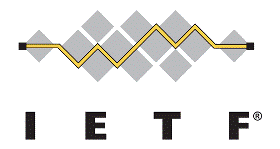

The Devuan project (Debian without systemd) has released version 5.0
Many people were dismayed at the Debian project's decision to switch, as of Debian 8 "Jessie", entirely to systemd as a process manager, instead of offering a choice between SysVinit (the previous, up to Debian 7 "Wheezy", startup manager) and systemd (the ever-growing code which seems hell-bent on taking over everything on a Linux system between the kernel and the applications).
It was therefore good to see the announcement of the Devuan project, as a fork of Debian, to maintain parallel releases, but without systemd (continuing to use SysVinit instead).
In some ways this is a simple idea - the vast majority of applications on your machine don't care what the init system is, just so long as there is one, and it's only the bits which handle system startup and shutdown, and process startup and shutdown, which Devuan needs to keep track of.
However, thanks to systemd's ever-increasing scope-creep, whereby it replaces all sort of parts of your system which you hadn't expected from init() (such as DNS resolution, network device naming, and system logging to name only a few), the Devuan project has had to take over quite a good amount of code and keep it up to date, whilst maintaining the application interfaces expected by the rest of the Debian distribution.
All in all, congratulations to the Devuan project team for releasing 5.0 "Daedalus", based on Debian 12 "Bookworm", and for making the upgrade process from Debian to Devuan (either between equivalent releases, or including a release upgrade at the same time) extremely simple - it's as easy as upgrading a Debian system from one release to the next. Devuan versions after "Jessie" are named alphabetically after minor planets.

Open Source IT specialises in clusters and high availability systems.
Many of the projects we've been engaged on recently (and not-so-recently) have been focused on High Availability - the interconnection of multiple systems as a single computing resource, which remains functional and accessible even when individual parts fail, need maintenance, get upgraded or need to be replaced.
We have expertise in creating highly-available (and often also geographically distributed) systems for telephony, databases, web servers, and key network infrastructure components (such as DHCP servers / clients, firewalls / routers, DNS servers, filtering proxies and more).
If you need to keep services running even when disaster strikes, we can help you design and build a system that simply keeps on working.

Open Source IT gets increasing requests for integrated computer telephony systems.
Open Source IT has worked on more and more telephony projects over the years, mainly based around the Asterisk open source telephony platform.
We've come up with some innovative solutions for telephone systems and Computer Telephony Integration, and we're always ready to help new customers solve new problems.

Open Source IT has been proud to provide support services to the IETF.
The Internet Engineering Task Force is one of the organisations that make the Internet work.
It's probably best known as the publisher of RFCs, the standards which enable diverse systems from multiple suppliers to interoperate reliably.
Open Source IT provided support services for over a decade on Debian systems and applications to keep IETF servers around the globe running smoothly.